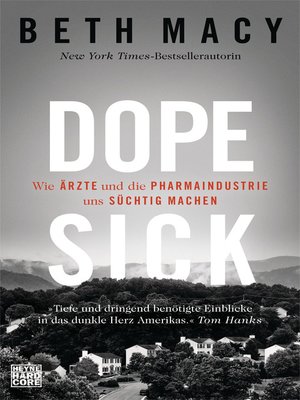
1 thing that prevents people from having access to treatment is stigma. I know from all the reporting I’ve done for my next book, which is about solutions to the crisis, that the No. But to see it reach Hulu - all of a sudden, the story is going to have a whole new audience, a younger audience, and hopefully can change the conversation around stigma. “Dopesick” did well as a book it was a bestseller and won an award. GAZETTE: How does it feel to see your work adapted for the screen? And when I came back to Roanoke, I wouldn’t just call the expert at Virginia Tech I would call the expert at Harvard. A local reporter isn’t going to think they have the authority to pursue that story, but the Nieman Fellowship gave me the authority to do that. It begins in China, then it goes down to rural Virginia, then it goes to Washington, D.C. My first book, “Factory Man,” about a local furniture maker that battled offshoring, is a global story. After my Nieman year, I went back to my newspaper with much more confidence and the ability to think bigger and more globally. MACY: I wouldn’t have written any of the three books I wrote if hadn’t come to Harvard. How did your time at Harvard help you become an author? GAZETTE: In 2010, you were selected as a Nieman Fellow. The interview was edited for clarity and length.



In a conversation with the Gazette, Macy explained how her time at Harvard contributed to her development as a reporter, detailed her work on the screen adaptation, and shared her reaction to the bankruptcy settlement that granted the Sackler family, owners of Ox圜ontin-maker Purdue Pharma, immunity from opioid lawsuits. The series is based on the bestselling book “Dopesick: Dealers, Doctors and the Drug Company that Addicted America” by Beth Macy, a journalist and former Nieman Fellow. The new Hulu miniseries “Dopesick” paints a grim and compelling picture of the opioid epidemic, which has killed hundreds of thousands of Americans over the past two decades.


 0 kommentar(er)
0 kommentar(er)
